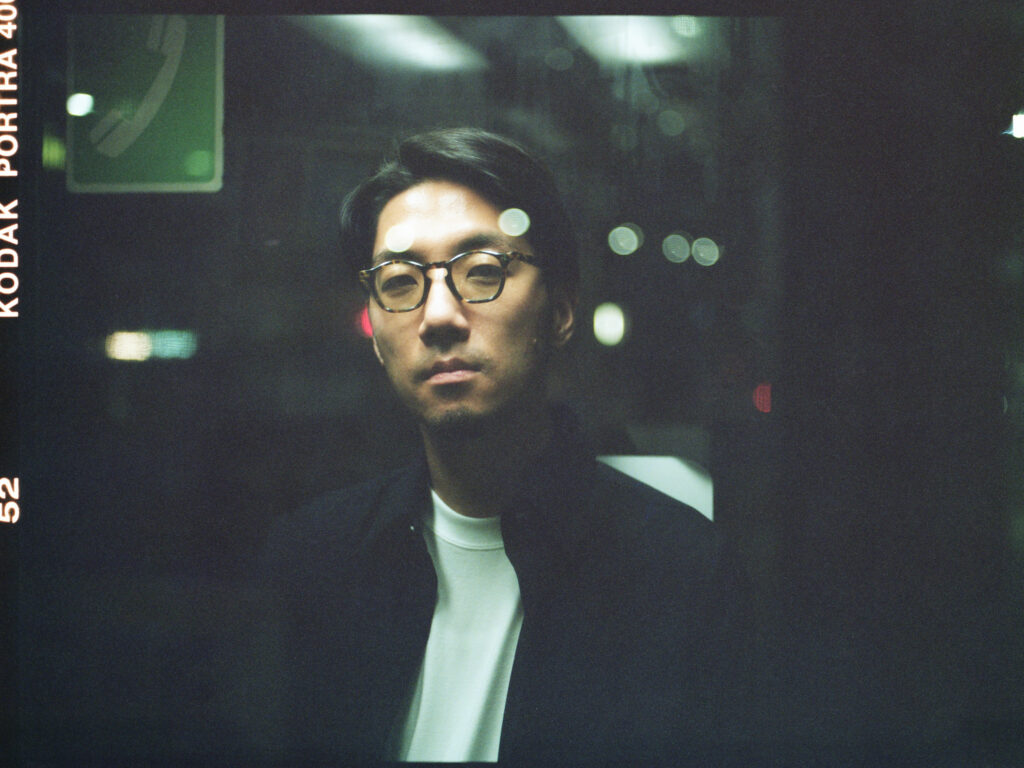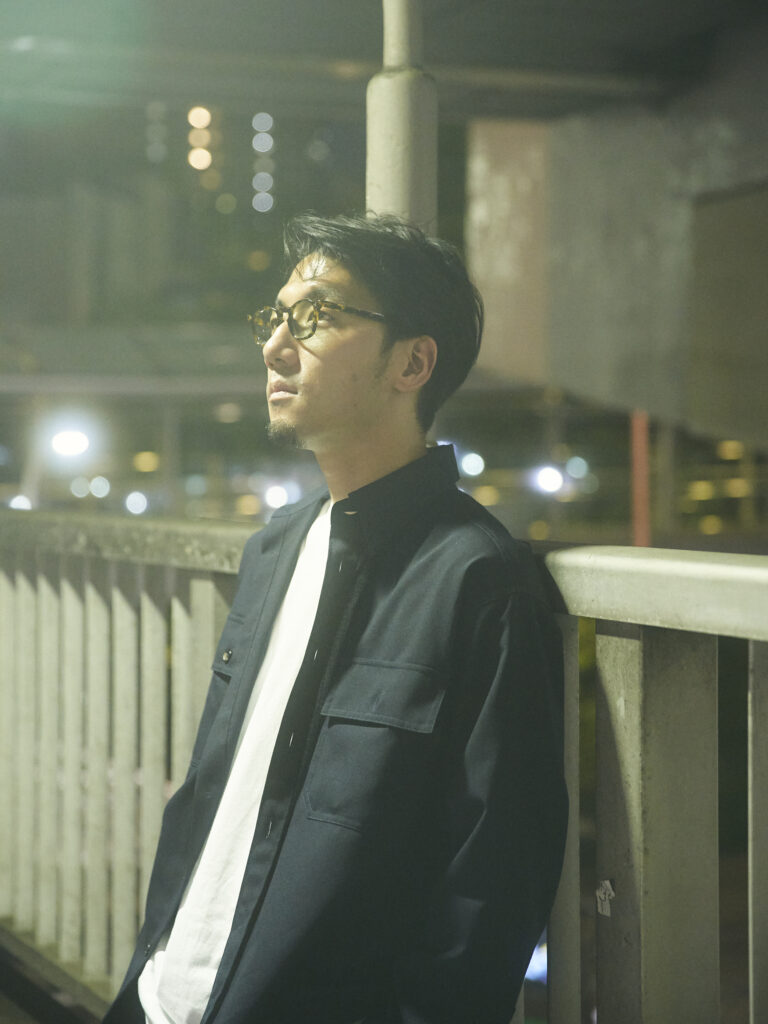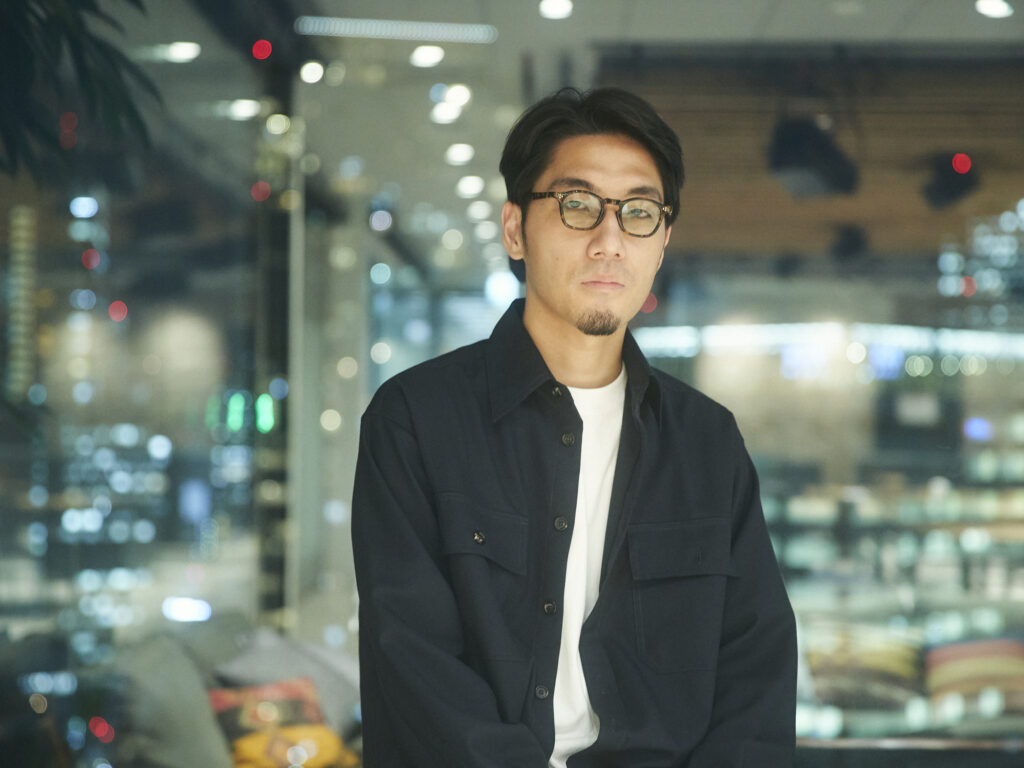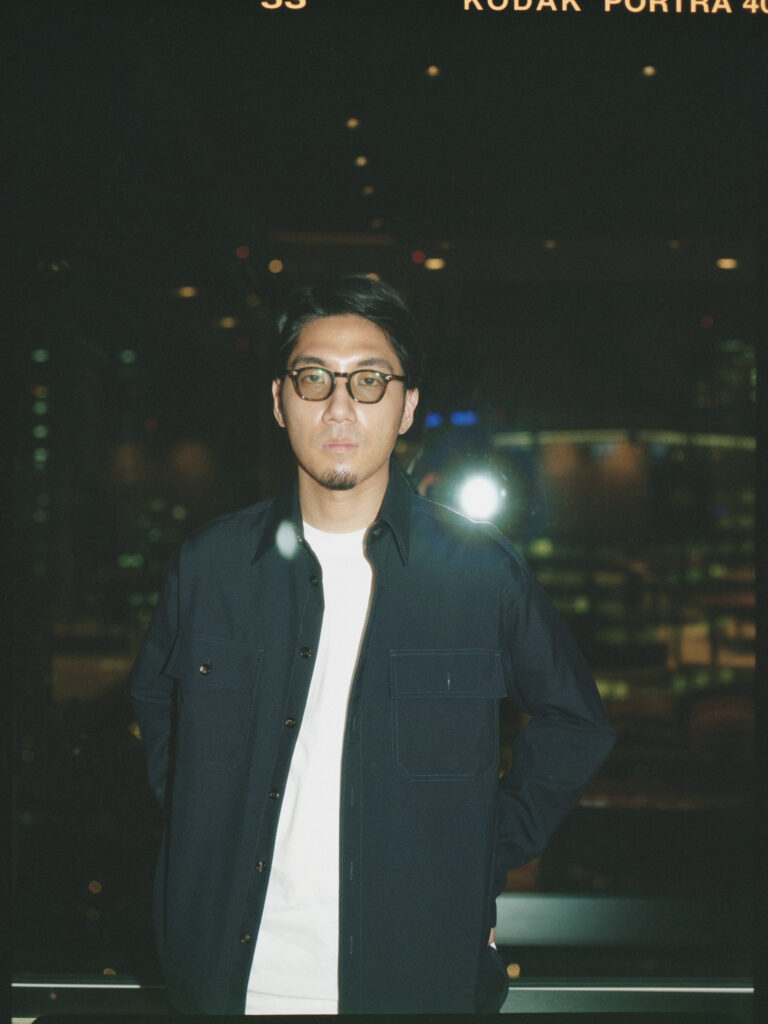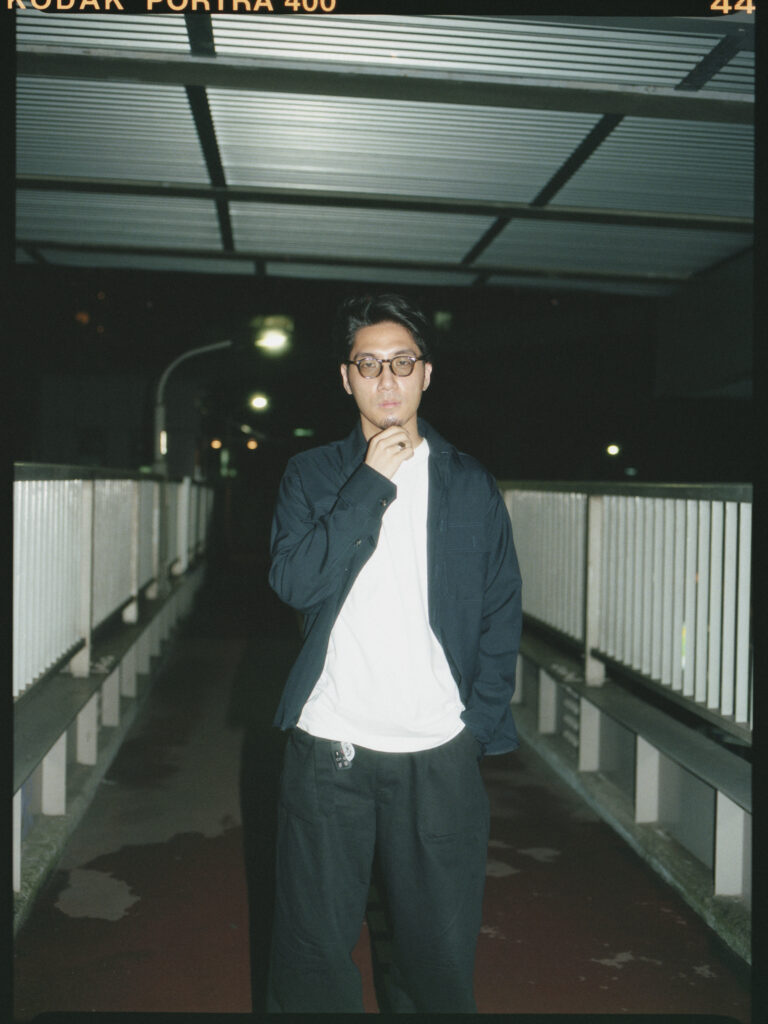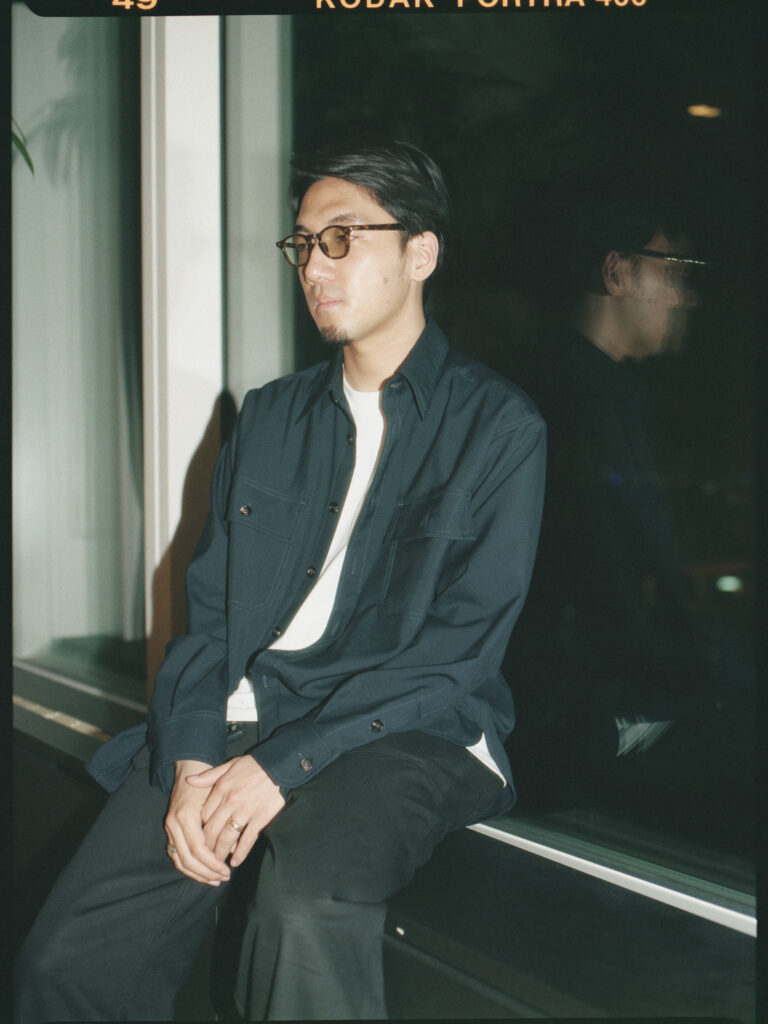“To me, my musical works are like photo booth photos — a way to create memories”, he explains with an insightful look on his face.
For instance, I recently listened to “Suisei feat. Onomatopoeia Daijin” for the first time in a while. The song has been circulating everywhere recently. I’m sure it transported many people back to “the good old days”, around ten years ago, when the song was released. Or that may have been their first encounter with “Suisei”. In pop music, the passage of time in some ways makes music more fun, but also cruel. How music changes with time is also a well-kept secret.
I reflect back. No one can question that tofubeats was representative of Japan’s pop music scene in the 2010s. At the time, the young talent was the one responsible for connecting the overground/underground scenes, online/reality, and bedroom/street scenes. His work was crucial in garnering a new generation.
Even after entering the 2020s, his fast pace never changed. He constantly releases remixes and songs, and is an active DJ. His music, which has reached the level of mastery, continues to change subtly while still retaining tofubeats’ signature sound. Of course, tofubeats himself is constantly changing, as well. At the same time he released his fifth album REFLECTION, his first in four years, he also announced his hearing loss. He chronicles his changes and his everyday life in his book Tofubeats No Chonan Nikki. To continue and to change as a result of the accumulation of what you continue to do. While many musicians have slowed down their music making pace or have moved into different genres, we looked into the strange relationship between the “unchanging tofubeats” and the “actually changing tofubeats”.
– I thought this new album was the most characteristic album of yours to date.
tofubeats: I feel like after years of training, I’m finally able to show myself.
– The details are very elaborate, but it’s flat overall. The contrast between the two is interesting. Your works have always incorporated elements that conflict with each other. It was especially noticeable this time around. The feeling, or “temperature” behind every song was consistent. I felt like body temperature control was an underlying theme of this work.
tofubeats: My definition of “good music” includes being able to listen to it over and over again. However, it takes time to create something that you can listen to many times. In that way, it was a blessing that we were able to continue production in a state of tension for nearly four years, partly because the release was postponed because of COVID. We were able to make many fine adjustments. Some songs were based on a rough idea on purpose, but we were able to make the smallest adjustments.
– I think many musicians tend to become introverted or extreme in their work after being immersed in it for such a long period of time, but your finished product has a nice pop feel to it.
tofubeats: There were many ups and downs in the process of making the album, but I knew I wanted to end the album on a bright note. I always try to change my approach to pop music, not just for this album, but for every single one. As long as I’m signed to a major label, I think adding such restrictions can make things more interesting.
– For example, the track that features Kaho Nakamura, “REFLECTION feat. Kaho Nakamura”, is likely to be immediately categorized as a drum n bass track because of the beat. But the fact that the “popiness” of it stands out first is impressive.
tofubeats: This is embarrassing, but when this song was released before the rest, everyone said that it sounded like Pinkpanthress. I had never even listened to Pinkpanthress before then. I was just listening to drum machines and thought, “drum n bass is great” and made the song. Fortunately this time, I was able to create without being too distracted by external trends.
I’m also older now, so I don’t trust my own music sensors anymore. I know that the next generation understands new trends better than I do, so I leave it to them and do what I want to do. “REFLECTION feat. Kaho Nakamura” also happened purely because I wanted to try it out. I watched a YouTube video called “I tried combining drum n bass and jungle beats using a hardware sampler”, and I thought I wanted to do something similar on Ableton. That’s how it came about. Not having to think about live shows (because of COVID) was also a significant factor. I usually play four on the floor when I’m DJing, and I play a lot of hip-hop style music when I play live. But when I’m making music without thinking about my live shows, I just want to make drum n bass.
Challenges of the theme “reflection”
– That song is most symbolic, but the album REFLECTION itself has themes of mirrors and reflections. I was surprised when I heard that because I thought you were headed in a wild direction. Since…
tofubeats: Yes, it’s a common theme (laughs).
– It’s not common, but rather, such an essential and large part of creation. Not just in music, but in art, films, and many different art forms, “mirror” is a theme that has been tried so many times, and a monster of a theme to tackle.
tofubeats: It’s a subject that many people, even historically, have taken on. At first, I was very naive. One day, I looked at myself in the mirror, freaked out, and took a photo of myself. I’m not sure why I took the photo, but I wanted to do a deep dive into that “why”. Afterwards, once I started production, I realized the gravity of the situation. Like, I realized that Michael Jackson had a song called “Man In the Mirror” (laughs). Once I started using the word “reflection”, I felt a little more at ease because I thought it was better than “mirror”. But I was determined to only focus on myself for this project, so I didn’t worry too much about other “reflections” – something that’s rare for me. Usually, I’d be concerned with doing something similar to others, but I trained myself to not care about those things while I worked on this project.
– In your book, you describe the moment you chose “reflection” as the theme. You were lying on the bed in a business hotel watching TV. In a sense, that’s a moment when your true self was laid bare. By taking a photo of that moment, that true self is captured through another filter.
tofubeats: I felt the intense difference between who I thought I was and who I actually was through the mirror and through my hearing loss. Until then, I never thought of the person in the mirror as someone losing their hearing. It’s the same from a stranger’s point of view. People don’t talk to me thinking, “this person might be deaf in one ear”. The more I lost my hearing, the more I lost faith in what I was seeing, hearing, and how I was receiving information… I felt like I was losing trust in my own senses. So when I thought about how to overcome this part of me that was wavering, I thought it would be interesting to incorporate my process of searching for a part of me that I wasn’t conscious of, like a documentary, through an album. I tried the diary for a similar reason.
– Are there portions of the song production that reflect that documentary feel?
tofubeats: I decided rather early on in the process to take on irreversible editing, in hopes of preserving the timeless aspects of the album. For instance, I rewrote MIDI data into audio, and sampled a song on the album that I wrote on the album, so that it would give a nesting doll effect. I’ve always thought that sampling and remixing my own songs was a way to convey how interesting music making can be. But I kind of did that with the whole album.
“I wanted to showcase the realistic parts like a documentary”
– In terms of irreversibility, as I read Tofubeats No Chonan Nikki, I thought about the various accidents that occur in everyday life, like a leak in the house, or your PC breaking. In daily life, these things are just inconveniences that pass us by. But when they are written in the diary, you can visualize how each one of them must have affected the production process. Seeing the accumulation of such things made me realize that people are constantly changing, and the reason we can’t go back to the way things were is because we’re not aware of such changes on a daily basis.
tofubeats: I had the same thought process making this, but was surprised that maybe I would be misunderstood. That’s why I wanted to release the book. People close to me – my family, imdkm, who appears in the book, and Kotetsu Shoichiro – all know that tofubeats creates music while feeding on resentment, hatred, envy, and jealousy. But I think the public sees me as just a skillful musician. That’s an interesting part of it all, but I wanted to showcase the realistic parts like a documentary this time.
– I see.
tofubeats: I briefly mention in my book that I used to hang out with the local rappers when I was in middle school. I saw them get up to some bad things up close… I was only in middle school, you know? I was like, “what are you doing to me”? (laughs). There was a gap between what they were rapping about and what they were actually doing. Even a DJ that I looked up to turned out to be a terrible person. Things like that happen a lot. It’s not that I can’t tolerate them, but I want my true self to match the self that I present to the world. I feel like the words and the actions of the artists I respect do align. Everyone’s human, so there will always be contradictions. Sometimes it can’t be helped. I felt like I wasn’t conveying that part well before.
– There has been a lot of news like that in recent years, not only in the music industry, but also in the film industry. Consequently, auteurism has become increasingly difficult. On the other hand, it’s interesting to see how works can be interpreted beyond the creator’s initial intention. That balance has become increasingly sensitive. That’s why publishing a book exposing your daily routine is so refreshing.
tofubeats: But that’s also what people like Konishi (Koyo) have done. I’m just copying them and putting stuff that’s unique to myself out into the world. I usually say, “I don’t publicly comment on political issues”, but that doesn’t mean I don’t think about politics or that it doesn’t affect me. But that’s a nuance that’s really hard to demonstrate. It’s easier to get across in a book. In the past, I intentionally stayed away from the realistic aspects that stemmed from documentary-style documentation. I’m glad I was able to convey my current values without hiding my influences this time.
– There’s a passage in your book that reads, “there is nothing in particular that bothers me about changing. I just watch it change”. That to me was so authentically you.
tofubeats: “Watching the scenery go by every night”, like from the song “WOW WAR TONIGHT” (laughs).
– (laughs). It’s like how everything in the world is transitory. Your album and book demonstrate how you’re living life while unobtrusively watching the landscape go by. But you’re still making your voice heard.
tofubeats: You’re right. In my case, I’m more documenting what’s currently going on, rather than forcefully trying to change it. That’s the whole point of creating an album. It’s fun to have a record of something. I love looking at five years worth of work at once and seeing how it’s changed. I like watching things intently. It’s not the type of thing you can intervene in and change. I feel the accumulated changes most in my song “Asa Ga Kuru Made Owaru Koto No Nai Dance Wo” (2014). I look back and think, “the balance on this record is crazy, I can’t believe I put this out in the world”. Now, it amazes me.
If you break something down into smaller pieces, people are ultimately the most important thing
– You mentioned the word “irreversibility” earlier. Were there any songs that ended up completely different from the original version because you watched it change and evolve?
tofubeats: The first song, “Mirror”, is a completely different song compared to its demo. The released version is a half step down from the original version. “Mirai” started with a sample from “REFLECTION feat. Kaho Nakamura”. “RUN” and “Keep’n Loving You” were also incorporated into that song later on. Digital music is fun because the shapes of your creations constantly change.
– On the other hand, it was mentioned in your book that the song “NIRVANA” you did with dodo had to be reverted back to its original because the changes weren’t working out. How do you decide what to morph more and what to revert back?
tofubeats: It’s hard to say, but I think it’s experience. And that my daily routine was on a Monday to Friday, 9 to 5 schedule. In other words, I was no longer lazily working on my music at night. I stopped when it was a good place to stop. I realized that nothing good ever came out of working late. Plus, since my routine became Monday through Friday because of COVID, I’m able to get work done without working overtime. I was also conscious of not overdoing things because of my hearing loss. I no longer feel the need to live up to my expectation of doing more to achieve more. Thinking lazily is also a form of dependence. I couldn’t be dependent once I started to lose my hearing. Although when the production of an album reaches its climax, I’d find that I wasn’t in the mood for anything else when I went home.
– Have you noticed any changes since moving to Tokyo?
tofubeats: Coming to Tokyo, I realized that it’s easier to live in Kansai because the local network is closer. Everyone was their own boss. When I was in Kobe, I felt a sense of belonging. But in Tokyo, it’s hard to find a sense of belonging because I’m not from here. But in a way, it’s nice to be able to “blend in”.
– You’ve said in the past that you like Newtown, Book-Off, J-Pop, or anything that has a shared public image. I feel fragments of such shared images in your past works. On the other hand, the Japanese music scene has changed considerably over the past four years, and there’s no longer a common image because the J-POP structure has collapsed. Is it more difficult now to determine how REFLECTION should be positioned within music?
Tofubeats: I understand, it’s really difficult. Your comment makes me happy, though, because that kind of work is what I was going for. When I used to listen to Illreme, I’d think, “how can I be like this?! This is too good!”. Time hadn’t caught up with us yet back then, and I wanted to be immersed in that mood. If a J-Pop category still existed, I would want to be the person to throw Illreme’s music in there. After all, that is how I got into music in the first place. But strangely, I was most excited about Warner Music making and releasing an album like REFLECTION without hesitation. I’m so grateful. When I first made my major label debut, I was gambling on my music so much that I couldn’t even imagine three years into the future. I was making things expecting failure. Considering that, they’ve allowed me to create much more freely.
– Perhaps you’re even at a point in your career where you can create your own image to then share to the world. The message can be, “the more you confront yourself and don’t limit yourself, the more your true self comes out. It’s OK to let it out.” I feel like many musicians are inspired by this release. It’s a significant presence from a generational perspective.
tofubeats: I’d be happy if my audience reacts like that. Even outside of music, I think if you break something down into smaller pieces, people are ultimately the most important thing. Career-wise, I won’t be the one tapping into “the new wave of house” or “the new wave of J-Pop”. I think this album is the result of that era.
– I think many musicians who’ve had long careers create works that confront themselves at some point – this may be yours. It’s interesting to watch where those musicians head afterwards. Do you have an idea of what you want to do next?
tofubeats: It’s fun getting to know myself through making music, so I’ve continued to keep records of it. But the most important thing is to never stop. As long as you don’t stop, you just wait until you catch the next fish. I think it’s important to solemnly continue. Personally, I think my third album FANTASY CLUB was my worst to date, but I feel like it’s grown on me lately. My manager and I were talking about how we wanted to do what we did in FANTASY CLUB with the same grueling intensity we had while making Lost Decade as an indie band. The only option is to just keep going. I can’t change what I aim for, or else there would be no point in keeping a record of it. Music making is documentation, and a way to create memories. It’s like taking a photo booth picture (laughs).
– I see (laughs). Whether with your album or book, I have a feeling that people who don’t normally listen to music can casually enjoy tofubeats and your music.
tofubeats: Exactly! I want to know what the people who don’t know me think about what they read or hear. There aren’t many people who come across your music with fresh ears when you’ve been active for such a long time. That’s one reason that motivated me to write the book, too.
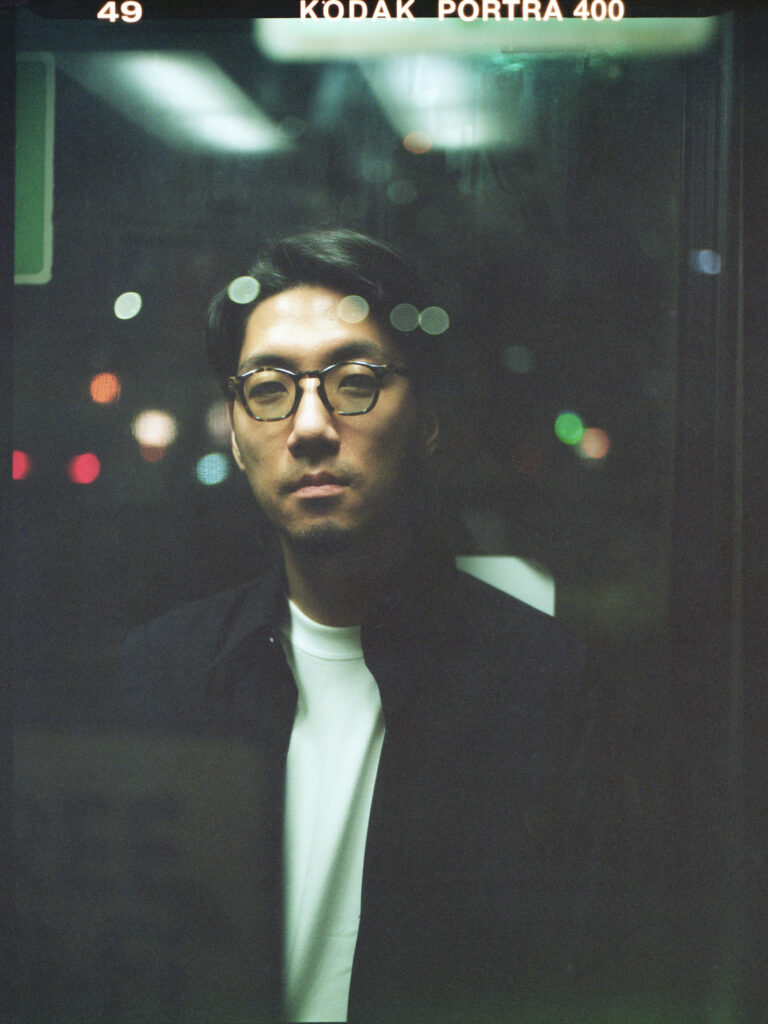
tofubeats / トーフビーツ
Born 1990, from Kobe prefecture. Started making music in middle school and performed at Japan’s largest Techno event WIRE in 12th grade, making him the youngest performer to ever participate. Subsequently, after “Suisei feat. Onomatopoeia Daijin” debuted at No.1 on the iTunes Store Singles Overall Chart, he made his major label debut. He has gained attention for his numerous collaborations with popular artists such as Chisato Moritaka, KREVA, and Takashi Fujii, and has released four full-length albums. On May 18th, 2022, he released REFLECTION, his first full-length album in four years. On the same day, he also published Tofubeats No Nanchou Nikki.
https://www.tofubeats.com
Twitter:@tofubeats
Instagram:@tofubeats
YouTube:https://www.youtube.com/c/tofubeats
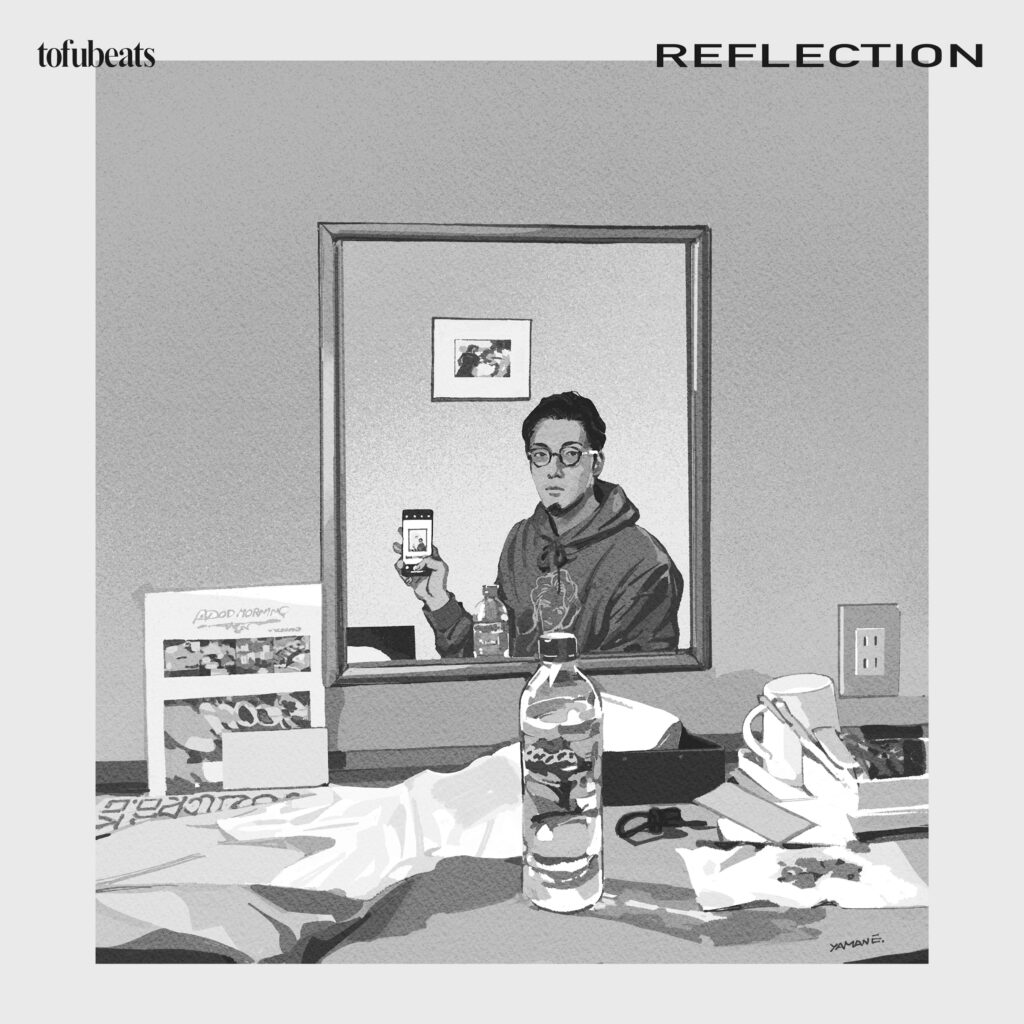
■5th アルバム『REFLECTION』
https://wmg.jp/tofubeats/discography/
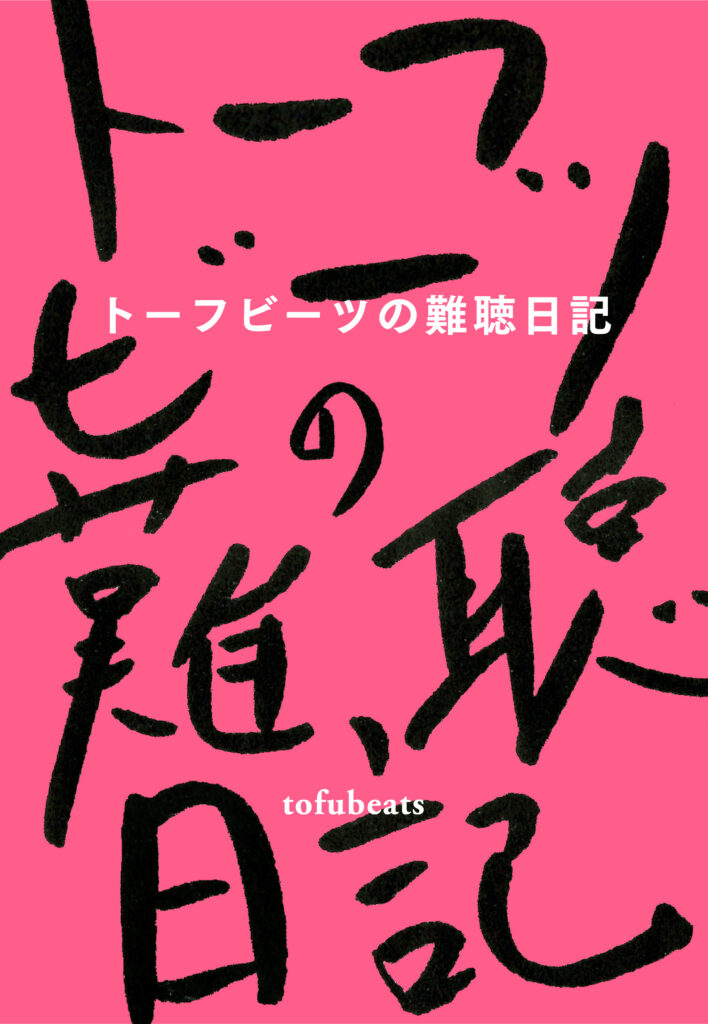
■Tofubeats No Nanchou Nikki.
¥1,870
http://kansai.pia.co.jp/news/art/2022-02/tofubeats.html
Photography Takuya Nagata(W)
Translation Mimiko Goldstein
Edit Atsushi Takayama(TOKION)

